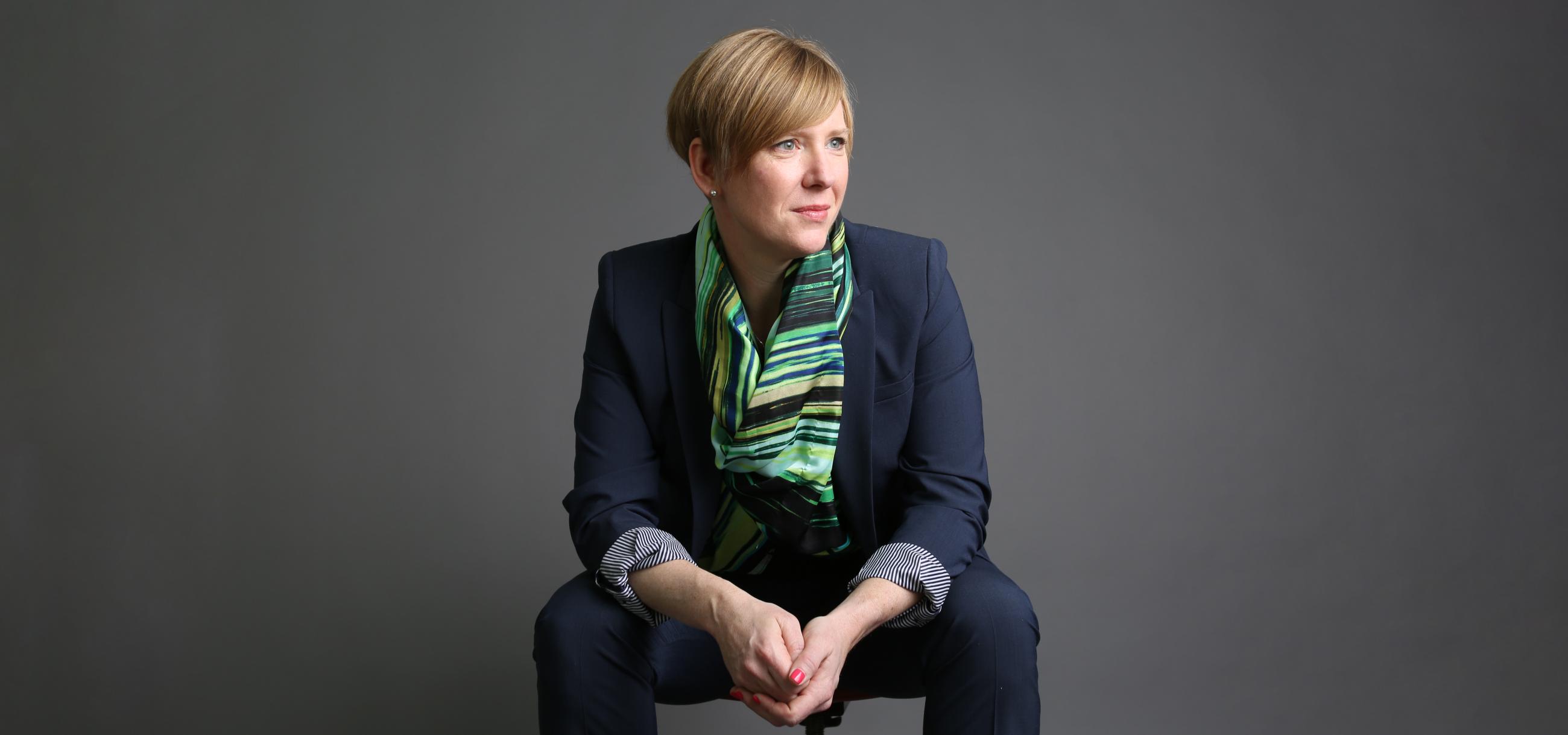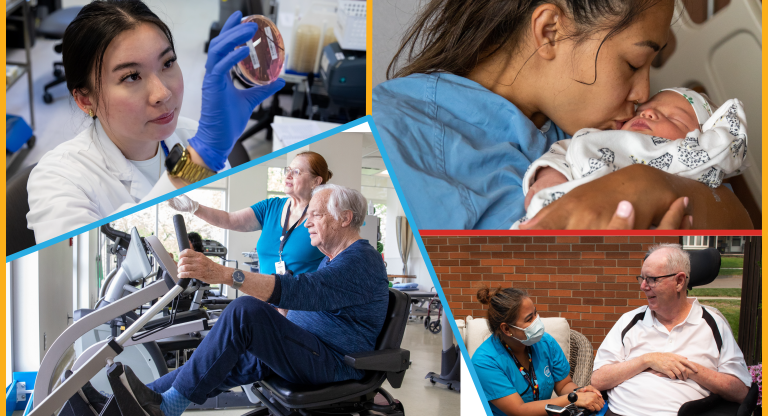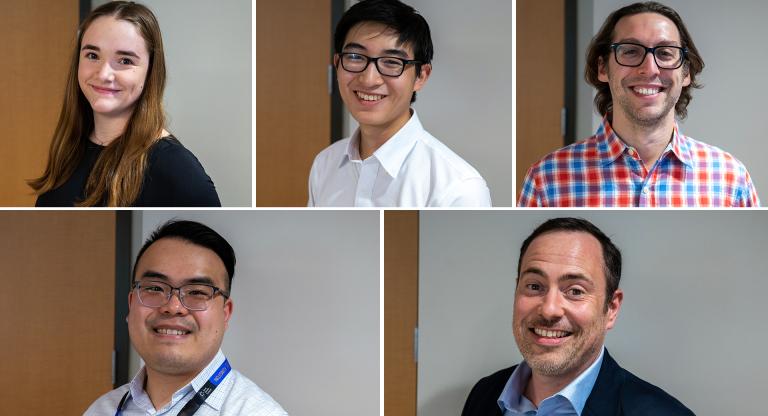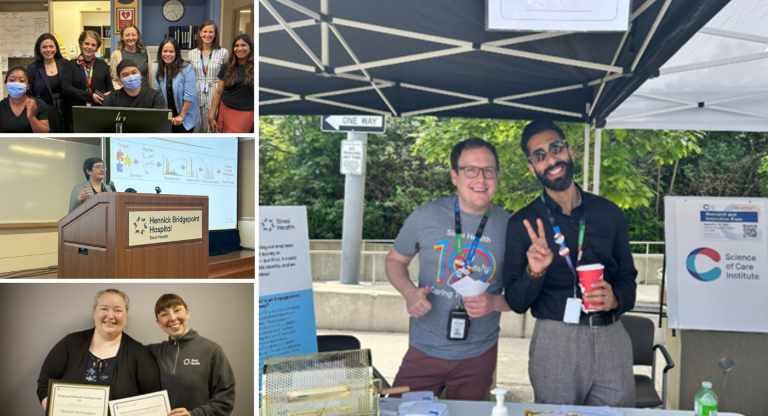Sinai Health researchers to trial support for stroke recovery

A stroke is often life-changing for patients and their families.
Fatigue, mobility issues, incontinence, depression, anxiety and isolation are only some of the challenges reported by stroke survivors as they return home from the hospital. The experience can be terrifying for caregivers too.
“You’re on high alert all the time,” says B., who is caring for her husband of 45 years. B. wished to remain anonymous to protect her husband’s privacy.
B. had to manage her husband’s multiple health scares while simultaneously handling all the cooking, driving, and cleaning duties on her own. She also felt powerless. The stroke had impaired her husband’s balance, and if he were to fall, she wouldn’t be able to lift him up.
“It’s constant worry and fear. And you feel very alone,” she said.
“There is a huge amount of isolation that happens from being a caregiver, and I’m hoping that this project reduces that isolation,” she said.
B. is a co-researcher on a first-of-its-kind study in Canada that will create and evaluate a volunteer-based transitional care program for stroke survivors.
Led by Dr. Michelle Nelson, a health services researcher at the Science of Care Institute at Sinai Health, the $1.8 million project aims to create at-home practical support program, Discharge Assistance and Support at Home (DASH), to address the needs identified by patients and their families.
With support from the Canadian Institutes of Health Research and March of Dimes Canada, a non-profit dedicated to helping people with disabilities, the study brings together experts in clinical trials, evidence-based interventions, health economics and policy, and people with lived experience like B., who helped shape the research approach.
“People who’ve had a stroke and their family members continually say they feel like they fall off a cliff when they get discharged from hospital and go home,” says Dr. Nelson, who is also an Investigator at the Lunenfeld-Tanenbaum Research Institute at Sinai Health and a leading voice in stroke services research in Canada and internationally.
As Vice President of the World Stroke Organization, Dr. Nelson knows well the challenges facing stroke survivors.
“They’re struggling because they’ve got to figure out how to resume their normal day-to-day activities while still recovering. They talk about not knowing how they’re going to get groceries or medications, keep their house clean, walk their dogs, get to doctors’ appointments. And those are needs that are continually identified by stroke survivors globally,” said Dr. Nelson, who is also an Associate Professor at the University of Toronto’s Dalla Lana School of Public Health.
With more than 100,000 new strokes in Canada every year, there is evident urgency for additional support for stroke survivors and their families, she added.
The DASH study draws on Dr. Nelson’s recent research that found people being discharged from hospital didn’t want to rely solely on family and friends and appreciated receiving help from volunteers of trusted community organizations.
Realizing that many of the reported challenges can be met without specialized healthcare skills, she has sought to enlist Canada’s enviable volunteering sector for stroke support. She said that while almost half of Canadians engage in volunteering, there is an opportunity to create more socially valuable volunteering roles in the community.
With its large volunteer network and focus on stroke, March of Dimes Canada was a perfect community partner for the project. Dr. Nelson is already collaborating with the organization on other stroke-related initiatives, but DASH is different in that it will recruit, train and match volunteers to newly discharged stroke survivors who wish to participate.
Each volunteer will visit their carefully matched stroke survivor once or twice a week for up to eight weeks post-hospital discharge. These visits are designed to offer a reassuring presence, help with light domestic tasks, facilitate transportation needs, and assist with everyday activities. The participants will also be introduced to services available in the community for support in the long term.
But that’s not all. Recognizing that human connection is part of health, the volunteers will also provide vital psychosocial support. And this can also benefit caregivers.
“It would be reassuring to have someone to talk to, to be honest with, because you are not being honest with your friends and family about how frightened you are,” said B.
The study will take place over the next four years, and it will crucially also involve an economic evaluation of the program to inform future policy and decision-making.
Dr. Nelson said the study provides an “an incredible opportunity to systematically evaluate and demonstrate the value of the community and volunteerism in the stroke pathway.”
“With this research, we not only want to meet the needs of people living with stroke, but also to understand and amplify where possible the very important contribution that our non-profit colleagues are making in the long-term experience of living with stroke.”
Dr. Anne-Claude Gingras, who is the Director of the Lunenfeld-Tanenbaum Research Institute and Vice President of Research at Sinai Health, remarked, “The DASH initiative is a testament to Sinai Health’s commitment to harnessing research for real-world solutions. It has the potential to reshape the landscape of stroke care and offer meaningful, sustainable support systems for those navigating the challenging path to recovery.”












